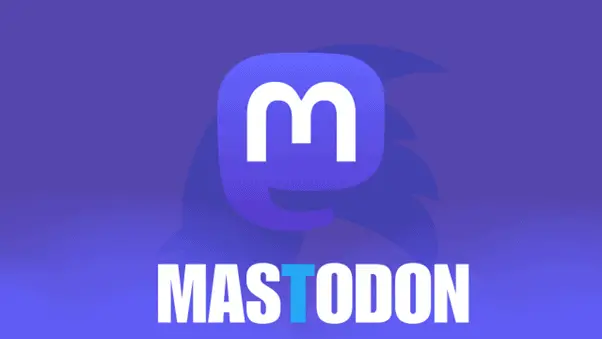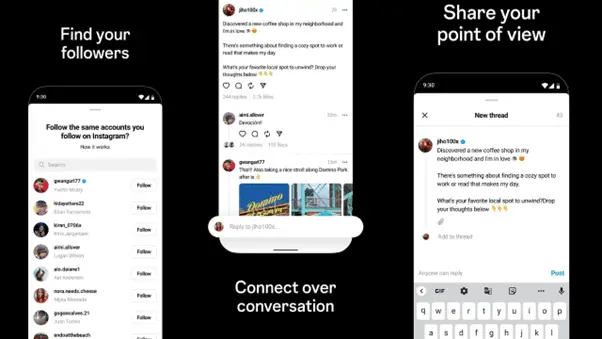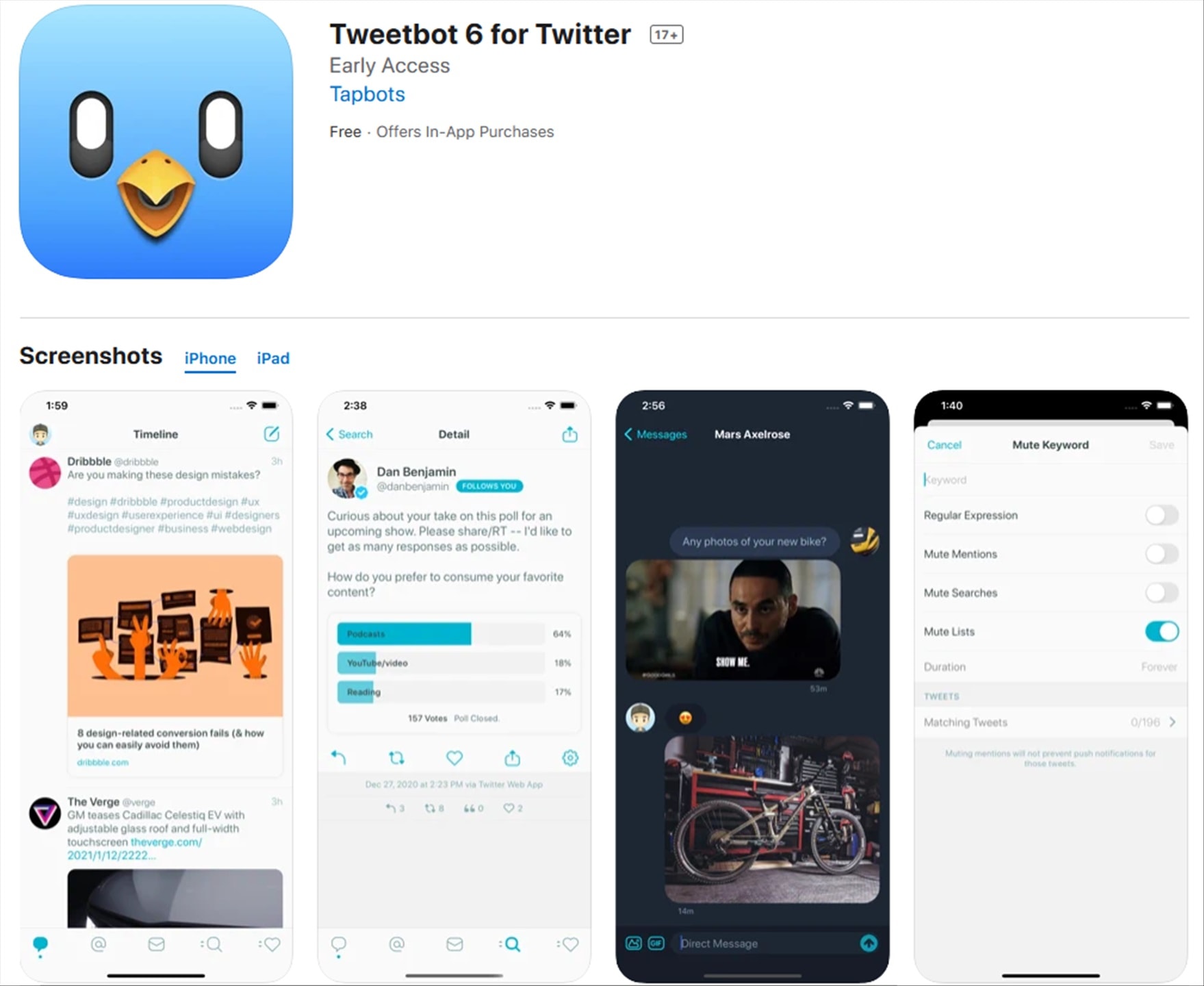Note: This is a guest post written by Jeeva Shanmugam – Concerns over the authority and impact of centralized social networks have grown over the past few years. Many users are worried about the effects this concentration of power has on our society and the possibility of censorship, monitoring, and data exploitation as a result of a small number of enormous firms (except Elon Musk).dominating the great bulk of internet communication
An appealing alternative that offers a more democratic and user-centric approach to online communication are decentralized social networks. One of my favorite and popular decentralized social networking apps is Mastodon, its advantages, and how they vary from conventional social networks are covered in this article.

What is Mastodon?
To compete with Twitter, the decentralized social networking service Mastodon was introduced in 2016. Because of its decentralized and federated foundation, users may build their own communities (instances) that are hosted on different servers but still communicate with one another.
Mastodon has grown in popularity over time as a social networking service that doesn’t have the same problems that other services have, such as censorship, data privacy worries, and user abuse. Here is a detailed analysis of all the features, capabilities, use cases, and other aspects of Mastodon.
Mastodon Features
Mastodon is a compelling alternative to Twitter because of its many features. Here are some of its main characteristics:
- Decentralization: Mastodon is based on the idea of decentralization, which implies that no single server has complete control over all of the data. Users can instead control their data by building their own instances (servers).
- Privacy: Because Mastodon respects user privacy, it does not gather or keep user data. Users can decide to make their accounts private and can restrict who sees their posts.
- Open source: Mastodon is a platform that is available under an open-source license, allowing anybody to read and edit its source code.
- Customization: Users may alter their Mastodon instance to meet their unique requirements by altering the color scheme, adding plugins, and other options.
- Federated timeline: Users may view postings from instances they follow on Mastodon’s federated timeline.
- No ads: Mastodon users do not have to worry about obtrusive adverts appearing on their timeline because it is entirely ad-free.
Mastodon Functionality
Mastodon is a very effective social networking site that gives users access to a number of features. Here are a few of its primary functionality
- Posting: Users may use hashtags to categorize their posts on Mastodon and publish text, photos, and videos.
- Direct Messaging: Mastodon users have the option of sending direct messages to other users.
- Boosting: Mastodon offers a feature similar to Twitter’s retweeting where users may give other users’ postings a boost.
These are all just the tip of the iceberg. Mastodon offers more features equivalent to or better than Twitter, and other social networking sites.
Why is Mastodon Popular?
The decentralized nature of Mastodon is one of my compelling arguments for why it is popular among users. Mastodon is not controlled by a single firm, in contrast to other social media networks.
It is instead hosted on servers managed by private individuals or businesses. Therefore, Mastodon users have greater control over their data and may steer clear of the data privacy issues that other social media networks experience.
Users have more sway over their material because of Mastodon’s decentralized structure. They can control who sees their postings and how their communities are run. In contrast, other social media sites frequently handle content moderation themselves, which might result in problems with censorship or biased moderation.
Mastodon’s reputation for inclusivity and warmth is another factor in its popularity compared to other social media networks. Content warnings, the opportunity to mute or ban other users, and the capability to build secret communities are just a few of the Mastodon features that are intended to increase the platform’s accessibility for users from underrepresented populations.
Mastodon users frequently establish close-knit groups based on shared interests, which contributes to the platform’s strong feeling of community. In comparison, some social media networks may make users feel less connected to one another. Users on Mastodon are also more likely to engage in meaningful conversations with other users rather than yelling into the abyss because of the platform’s community-driven approach.
Finally, because Mastodon is open-source, it is always changing and getting better. Users can recommend new features or enhancements to the platform’s development. Mastodon is a more user-driven and dynamic platform as a result than other social media networks.
Mastodon vs Twitter – Which is Better?
Which platform is ideal for you mostly depends on your needs and tastes. Both Mastodon and Twitter have their own advantages and disadvantages.
Mastodon is an open-source, decentralized social network that enables users to build their own “instances”—communities—with their own set of guidelines and rules for moderation. Additionally, Mastodon places more of a focus on user data ownership and privacy. Mastodon is decentralized, therefore it could be more challenging to identify and interact with folks outside of your instance.
In contrast, Twitter is a centralized platform with a bigger user base and a wider audience. It is better suited to those who wish to engage with a large audience, interact with people outside of their own social network, and take part in hot subjects and conversations. Additionally, Twitter includes more advanced capabilities including the capacity to utilize hashtags and embed tweets.
It’s ultimately up to you to choose which platform is most compatible with your personal or professional objectives. Mastodon could be a better option if privacy and community-building are your top priorities. Twitter can be the best option if you want to engage in larger debates and reach a wider audience.
Wrapping it All
Mastodon is a distinctive social networking site with several features and functionalities. It is a compelling alternative to conventional social networking sites due to its dedication to privacy, decentralization, and open source.
Mastodon’s adaptability allows for a variety of uses, including community development, education, and protest. Mastodon is undoubtedly worth investigating, regardless of whether you’re searching for a new social networking site or just want to try something new.






